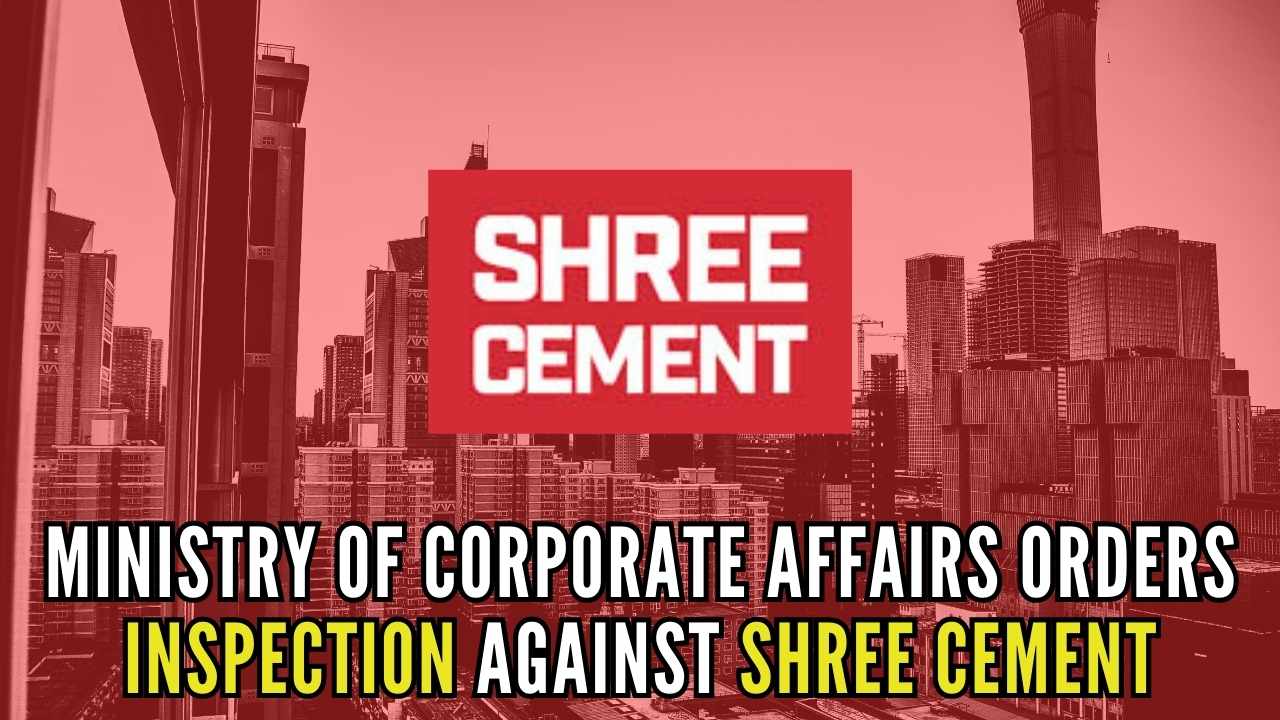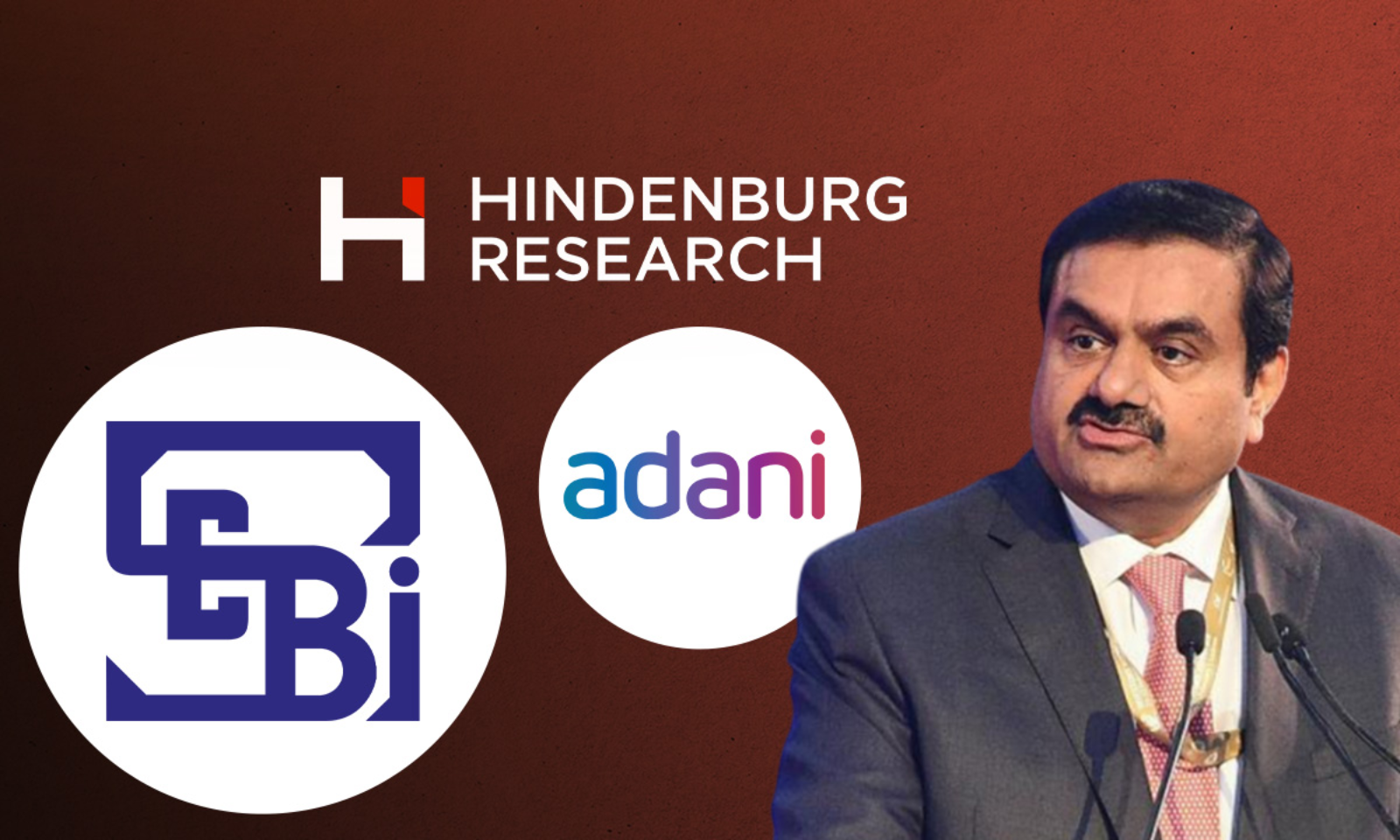Congress’s Jairam Ramesh Alleges of Undue Advantage for Adani Group Amidst Raids and Acquisitions; Is There Any Substance To These Allegations?
In the world of business and competition, allegations of undue advantage and favourable treatment have always attracted attention and scrutiny. Such claims have once again surfaced in the context of the Adani Group, one of the prominent conglomerates in India, wherein fresh accusations (Jairam Ramesh) have been made that the group may have leveraged its influence to gain the upper hand over competitors, particularly through alleged misuse of investigative agencies.

Congress’s Jairam Ramesh, Adani Group, Raids and Acquisitions
The Indian government is yet again facing allegations of favouring the Adani Group, a conglomerate led by Gautam Adani, by reportedly misusing investigative agencies to intimidate and hinder competing companies seeking to acquire valuable assets.
The Congress party has accused the BJP government of manipulating probe agencies to benefit a specific group of business elites. Jairam Ramesh, the general secretary of the Congress, has claimed that firms competing with the Adani Group for assets in crucial sectors like airports, ports, and cement have been subjected to intimidating raids by the Central Bureau of Investigation (CBI), Enforcement Directorate (ED), and Income Tax Department.
These raids, according to Ramesh, have dissuaded potential bidders from pursuing their bids, thereby allowing the Adani Group to secure these assets.

The allegations surrounding the Adani Group’s acquisitions and business strategies, examining the events and circumstances that have sparked controversy and debate, is a matter of great concern.
By exploring the sequence of raids on rival companies, the timing of acquisitions, and the broader context of Adani’s expansion, may shed light on whether there is substantial evidence to support claims of preferential treatment.
An enquiry into the same will perhaps give a more comprehensive overview of the situation and initiate a deeper consideration of the dynamics that might be at play today in India’s corporate scene.
The Acquisition of Sanghi Industries
The latest episode cited by Congress involves the acquisition of Sanghi Industries by Adani-owned Ambuja Cements.
This alleged sequence of events highlights a possible pattern:
- On April 28, 2023, Shree Cement, a prominent player in the industry, expressed interest in acquiring Sanghi Industries.
- Subsequently, on June 21, 2023, the Income Tax Department conducted raids at Shree Cement’s locations.
- This was followed by Shree Cement’s withdrawal from the race to acquire Sanghi Industries on July 19, 2023.
- Finally, on August 3, 2023, Adani-owned Ambuja Cements announced its acquisition of Sanghi Industries.
Hence, it is the timing of these events that have raised suspicions of potential undue influence in favour of the Adani Group and prompted the Congress party to accuse the government of facilitating a conducive environment for Adani’s acquisitions by reportedly conducting raids on competing companies, thereby pressuring them to withdraw from the bidding process.
These allegations have surely led to concerns about transparency and fairness in business dealings, with critics questioning whether such actions give the Adani Group an unfair advantage over its competitors.
While numerous Adani acquisitions and expansion efforts have been receiving significant attention, other areas of the conglomerate’s operations are also under scrutiny.

The Adani Group in the present is diversifying into various sectors, including media, infrastructure, cement, and renewable energy; however, this diversification has brought the group both praise and scepticism as it seeks to expand its influence across a wide range of industries and at lightening speed at that.
Adani Enterprises is the largest listed business incubator in the country and breeds businesses in four core sectors — energy & utility, transportation & logistics, consumer, and primary industry.
Its current business portfolio includes a green hydrogen ecosystem, data centres, airports, roads, food/FMCG, digital, mining, defence and industrial manufacturing, among others. The company is also tapping industry opportunities, such as green hydrogen, the aviation sector and data centres.
AEL operates and manages seven airports — Mumbai, Ahmedabad, Lucknow, Mangaluru, Jaipur, Guwahati and Thiruvananthapuram, and is building the greenfield Navi Mumbai airport.
As these allegations continue to make headlines, the government faces increasing pressure to address concerns related to fair competition, transparency, and ethical business practices.

Let us understand the Shree Cement raids where income tax officials reveal alleged tax fraud worth Rs 23,000 Crore.
- In the aftermath of the recent raids on the Shree Cement Group, Income Tax authorities seized documents that point towards a substantial tax fraud amounting to approximately Rs 23,000 crore.
- During the course of the investigation into the Shree Cement Group, Income Tax officials discovered compelling evidence indicating a tax evasion scheme reportedly amounting to Rs 1,200 to 1,400 crore per year. This finding emerged after suspicions arose regarding the legitimacy of the tax deduction claims made by the group.
- Additionally, reports indicate that the tax authorities unearthed a series of dubious agreements purportedly executed by the Sarpanch (village head) and the local bodies, causing financial losses to both the central and state governments.
Sri Group’s chairman, HN Bangor, and Vice Chairman, Prashanth Bangur, moved out after the raids. Groups joined President Arvind Kejriwal. KHICHA was reportedly called in for questioning several times during the raids, but he, too, did not appear before the income tax officials and the officials are also unable to contact senior officials of the firm.
A team from the income tax departments, jaipur office, had graded more than 24 locations of cement in Jaipur, Beware. BEA, WA, R, Udaipur Ajmer and Chittorgarh. More than 200 income tax officials and policemen were involved in this raid.
According to IT officials, there were huge irregularities in the accounts of poll purchased for cement production. It was on the basis that the action followed against the company. Income tax department officials also said that a few other companies also on their radar, and they may soon conduct a survey on real estate mining companies and other big businessmen.
In the financial sphere, Shree Cement’s stock experienced a significant downturn, plummeting by over 10% to Rs 22,601 on the BSE during Monday’s trading session. Media reports have alleged that the company may have evaded taxes amounting to Rs 23,000 crore. This adverse market response follows a recent decline of more than 12% in the stock’s value over the course of the last two trading days.
Shree Cement’s press release has sought to address the concerns raised by the ongoing income tax surveys. The company has affirmed its commitment to cooperating with officials and has highlighted the circulation of incorrect information in certain media circles.
While these events have impacted the company’s financial landscape, the broader market context presents a mix of data and opinions. Shree Cement reported a 15% year-on-year drop in net profit during Q4 FY23, along with a 17% YoY rise in sales for the same period.

Some Of Adani Group’s Notable Acquisitions in FY22 & FY23 And Investments
The Adani Group has made several significant acquisitions in the fiscal years 2022 and 2023. These acquisitions span various sectors and accentuate the conglomerate’s growing presence in key industries.
Here’s a rundown of the notable acquisitions made by the Adani Group during this period:
1. Acquisition of NDTV Stakes Gautam Adani garnered attention with the acquisition of a stake in the media company NDTV.
In August 2022, he acquired a 29.1% stake in NDTV through Vishvapradhan Commercial Private Limited (VCPL); an open offer was launched to acquire an additional 26% stake, as per SEBI norms, on November 22.
The recent update reveals that Adani has raised its stake in NDTV to over 37% through the open offer.
2. Ambuja Cements’ Acquisition of Sanghi Industries Part of Adani Cement, Ambuja Cements Ltd acquired a 57% promoter stake in cement manufacturer Sanghi Industries Ltd.
The acquisition was valued at ₹5,000 crore, contributing to Adani’s cement business expansion. The move is part of Adani’s plan to invest $4 billion-$5 billion to increase its cement capacity to over 100 million tonnes within two years.
3. Entry into the Water Segment Adani Enterprises revealed its intention to enter the water segment as a part of its core infrastructure business.
Adani Enterprises, which is launching India Inc’s second-largest follow-on public offer worth Rs 20,000 crore, said it is planning to enter the water segment as this is a key element of its core business of infrastructure.
“Being the largest infrastructure player and having been there in almost the entire spectrum of this critical segment for the past two decades or so, we’re very keen on tapping the water segment by entering water purification, treatment and distribution areas, Singh said.
“As we do a lot of project/company incubations, this will also be part of our incubation project, but nothing has been fixed yet,” he said, refusing to divulge more details.
We’re currently studying the scope and opportunities and also looking at possible joint venture projects/acquisition targets. We are very keen on this segment as water is a core element in any infrastructure segment, Singh added.
The group had previously announced plans to invest USD 50 billion over the next ten years in the green hydrogen ecosystem to produce up to 3 million tonnes of green hydrogen. Also, it plans to expand its solar module manufacturing capabilities at Mundra SEZ in Gujarat to up to 10 gw per annum.
4. Completion of Karaikal Port Acquisition Adani Ports and Special Economic Zone (APSEZ) successfully completed the acquisition of Karaikal Port which is situated on India’s eastern coast; Karaikal Port is an all-weather deep-water port.
This strategic acquisition further bolsters APSEZ’s position as a leading transport utility in India, and the acquisition was approved by the National Company Law Tribunal (NCLT), marking a significant milestone for the Adani Group.

The Viewpoint
The growing uncertainty over the principles of fairness and transparency and the unfolding scenario involving the Adani Group amidst raids and acquisitions has ignited a discourse that compels one to probe deeper into the relationship between government actions and business outcomes.
The Congress party’s allegations (not the first time) point to a potential pattern of using investigative agencies to tip the scales in favour of a particular conglomerate (Adani/ Amabani), raising concerns about healthy competition and ethical conduct.
As far as the Adani group is concerned, the timeline of events surrounding the Sanghi Industries acquisition adds to the intrigue, thus prompting questions about whether there is indeed a level playing field in business transactions.
The interplay between government agencies, competing companies, and conglomerates like Adani accentuates the possibility of a delicate balance between regulatory actions and business interests.
The allegations, though yet to be fully substantiated, stress the need for clear safeguards against conflicts of interest and preferential treatment in the realm of business.
The government’s response and the outcomes of ongoing investigations will serve as litmus tests for the integrity of India’s business environment and the Indian government.
Transparent and fair investigations, coupled with an earnest commitment to address any discrepancies, are essential to restore confidence and faith in the regulatory mechanisms.
As the nation watches these events unfold, it’s a reminder that robust systems of governance and ethical conduct are vital for sustaining a thriving economy that benefits all stakeholders.
Ultimately, the credibility of both the government and the business entities involved hinges on their ability to address these allegations in a manner that upholds the principles of justice, fairness, and accountability. The aftermath of this episode will play a role in shaping not only the business landscape but also the broader narrative of integrity in the intersection of business and politics in India.




